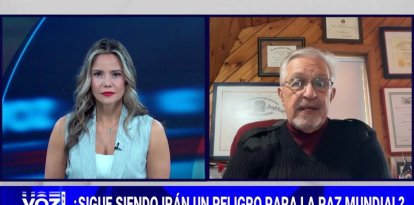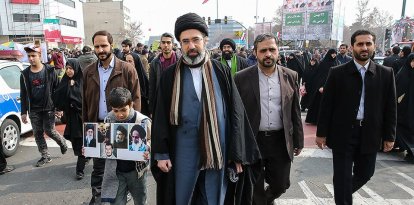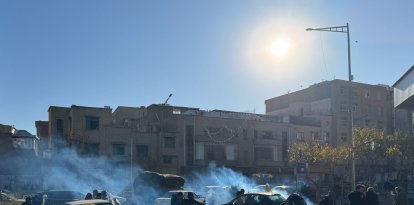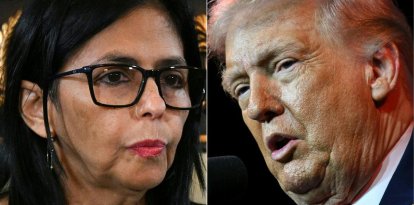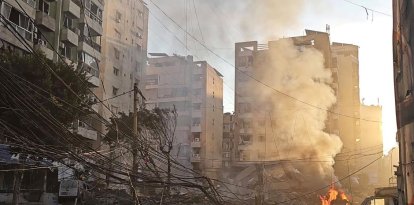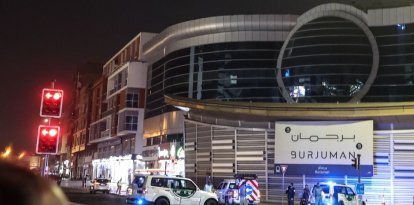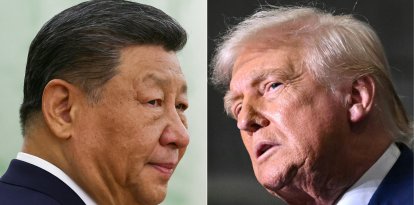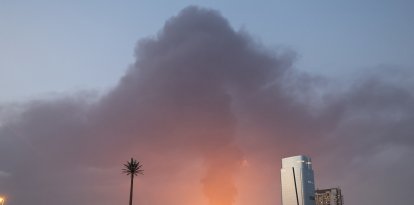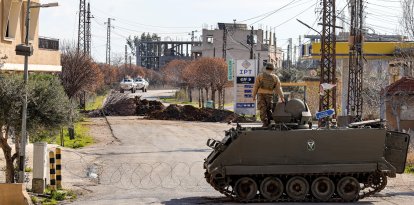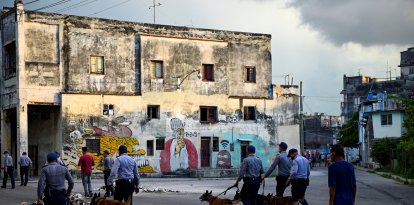The dictator Maduro strengthens his power with the complicity and support of Joe Biden
This Tuesday it was learned that the Democratic president plans to lift some of the sanctions applied to members of the socialist regime. In addition, the United States celebrated the beginning of a new "dialogue" between the dictatorship and the opposition.

El dictador Maduro afianza su poder con la complicidad y el apoyo de Joe Biden
The dictator of Venezuela, Nicolás Maduro, is regaining ground in the international community and consolidating his power despite the fact that his country is experiencing the largest humanitarian crisis in history. For years, Maduro was isolated from the world: the majority of democratic countries did not recognize him as president of the Republic after elections were held that did not have the necessary guarantees. But the Government of Joe Biden has been softening the pressure that the United States promoted against the dictatorship.
This Monday two events were recorded that give greater stability to the dictator and his allies. Two US officials reported that the Democratic government will ease sanctions if Maduro guarantees free, transparent and internationally monitored presidential elections in 2024. At the same time, it was learned that the international community will accompany a new round of talks between the regime and part of the opposition.
"Two people familiar with the talks told The Washington Post that sanctions relief will be announced after the Maduro regime and the Venezuelan opposition sign an agreement during a meeting in Barbados on Tuesday," said the report by the news outlet El Nacional.
But this strategy is not new. In Venezuela, at least 20 dialogues have been held between the dictatorship and the opposition without reaching agreements. The dictator takes advantage of that time to gain legitimacy and then hits the negotiating table after getting what he wanted. In fact, according to El Nacional, Maduro assumes that there is a consensus to lift the sanctions. However, in the regime there is still no talk of changes to achieve democratic elections. On the contrary, what there is is a constant threat about the possibility of not allowing the opposition primary election that is scheduled to take place this Sunday.
The politics of pressure on the dictator
The ignorance and pressure against the dictator intensified thanks to the support that the United States Government gave to the Venezuelan opposition during the Administration of Republican Donald Trump. On January 23, 2019, Trump recognized Juan Guaidó, president of the Venezuelan Parliament, as interim president of Venezuela. The decision of the United States was protected under article 233 of the Constitution of the Republic of Venezuela, which establishes that the president of the National Assembly assumes the functions in the event of absolute failure in the Executive.
Donald Trump's commitment to Venezuela
From that moment, Trump's foreign policy to promote the freedom of Venezuela was tougher. He increased sanctions against officials of the Chavista regime and US authorities took important steps to formally accuse several members of the Venezuelan dictatorship of drug trafficking.
The sanctions included the freezing of the officials' accounts and assets. As well as the prohibition of transactions, confiscation of assets, arms embargoes and travel bans. The United States also applied additional sanctions to the oil, gold, mining and banking industries.
In parallel with these accusations, progress was also made in the investigation by the International Criminal Court against the regime for violation of human rights. Hundreds of complaints against the Chavista chain of command led to Argentina, Canada, Colombia, Chile, Paraguay and Peru referring the situation in Venezuela to the Courts.
The pressure weakened the dictatorship. Opposition leaders insisted that this United States policy towards the Venezuelan regime should be maintained until a political agreement was reached that would lead to freedom.
For example, Venezuelan leader María Corina Machado explained, in conversation with El Nacional, that the sanctions were a demonstration that the democratic world is committed to political change in Venezuela. She said these actions demonstrated the determination of the United States to contribute to the restoration of democracy.
“President Trump's decision is correct and timely. Its impact is very great and contributes to the end of tyranny. It has the support of the majority of Venezuelans. It is a demonstration that the United States is committed to advancing on the path of force to liberate Venezuela,” Machado stated.
Biden's complicity
However, the strategy changed when Joe Biden arrived at the White House. The Democratic Government not only proposed a policy of dialogue from the beginning, but with its actions it allowed the regime to return to the international stage.
A demonstration of this was the presence of Delcy Rodríguez, vice president of Venezuela, at the Regional Summit between the EU and the Community of Latin American and Caribbean States. She was received with kisses and hugs by different presidents, but she also met with leaders to promote the end of the sanctions.
Juan González, special assistant to Biden and principal director of the Security Council for the Western Hemisphere, announced that the policy of sanctions against officials who violate rights “will not change the status quo.” “Here what we are trying to create are incentives for them to take a different route; but the window is one that will close eventually. And it would be unfortunate because last year - around a million Venezuelans - left that country due to the political, economic and security situations," González said in an interview for the Voz de América media.
But Biden's position is something that had already been announced. Upon assuming office as president of the United States, he assured that he would opt for dialogue to confront the Venezuelan crisis. In fact, US officials traveled to Caracas more than a year ago to meet with the Maduro regime.
Another fact that demonstrated the shift in United States policy to address the Venezuelan crisis was the release of the two nephews of Cilia Flores, Maduro's wife, detained in the United States for drug trafficking crimes. In exchange, the dictator released seven Americans, including five former Citgo executives, detained in Venezuela since 2017.
The Biden Administration insists that these decisions were made in an attempt to achieve the return of democracy in the South American country through negotiation. But it has not borne fruit. Maduro seems to have a more stable and confident dictatorship with the beginning of international recognition, while the Venezuelan crisis deepens, which has caused the departure of more than seven million Venezuelans; according to data from the Coordination, Integrity and Migrants Platform of Venezuela.
Precisely, the migration crisis that has been generated in the region is a demonstration that the situation in Venezuela has not improved. This is explained by David Smolansky, former commissioner of the OAS General Secretariat for the Venezuelan migrant and refugee crisis. "1,700 people a day do not leave a country that is fixed. Our office has collected at least 700 testimonies from victims of the dictatorship and there is one constant: people continue to flee due to food shortages, medicine shortages, insecurity, systematic violations of human rights, threats, persecution and economic collapse," Smolansky explained in a conversation with El Nacional.
Furthermore, he maintains that the crisis in Venezuela will only be resolved with the departure of Nicolás Maduro from power. "This is a human landslide that has a very clear cause, which is an illegitimate regime, which is responsible for the complex humanitarian emergency. The regime has as a state policy the violation of human rights, it is responsible for the lack of light, there is no water, it´s responsible for the economic collapse and, in addition, he made a pact with the underworld so that Venezuela is one of the most violent countries in the world," said the leader.
Meanwhile, the Democratic Administration continues to “support any conversation that exists between the unitary platform and the de facto Government” to ensure a return to the dialogue table.














